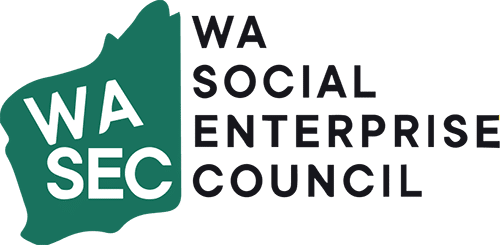Every successful social enterprise is supported by a committed founding team that drives its vision, strategies, and impact. Building the right team is crucial for establishing a strong foundation for your venture and requires careful consideration of values and clear distribution of responsibilities.

Recruiting the Right NFP Board Members
- Identify Skill Gaps: Determine the expertise your board requires, such as legal, financial, marketing, or industry-specific knowledge. Identify areas where your team lacks proficiency and seek individuals who can fill those gaps.
- Align with Mission: Look for board members who share a deep passion for your social enterprise’s mission. Their commitment to the cause will drive their active involvement and dedication to your venture’s success.
- Network and Research: Leverage your network and industry connections to identify potential board members. Conduct thorough research to ensure their values, track record, and reputation align with your organisation’s ethos.
- Interview and Assess: Conduct interviews to gauge candidates’ alignment with your mission, leadership style, and strategic vision. Assess their ability to contribute meaningfully and collaboratively.
- Diversity Matters: Aim for diversity in skills, perspectives, backgrounds, and demographics. A diverse board enriches decision-making, enhances innovation, and strengthens community connections.
Dividing the Founders Pie
The allocation of equity among co-founders is a delicate process that requires transparency, trust, and a fair distribution of responsibilities:
- Open Conversations: Engage in open discussions about equity distribution early in the process. Clearly define roles, contributions, and expectations to ensure everyone is on the same page.
- Consider Contributions: Evaluate each co-founder’s contributions, whether financial, intellectual property, industry expertise, or sweat equity. Recognize the value each member brings to the table.
- Vesting Schedule: Implement a vesting schedule that rewards commitment and longevity. This ensures that equity is earned over time, discouraging early departures and promoting long-term dedication.
- Reserve Equity for Future Contributors: Leave room for equity allocation for key hires or advisors who may join your venture later on. This demonstrates your willingness to recognize and reward talent.
- Professional Advice: Seek legal and financial advice to structure equity distribution and agreements. A professional’s guidance can prevent future conflicts and legal complexities.
The Founders Pie Tool
The Founders Pie Tool is reproduced from Frank Demmler, Teaching Professor of Entrepreneurship at the Donald H. Jones Center for Entrepreneurship. It provides a methodical approach not only to division of equity in for profit enterprises, but also a useful guide for not for profit enterprise founders to figure out which roles they need in their team and the commitment required per individual in these roles. As the majority of new ventures fail due to weaknesses or challenges in the founding team, this tool helps avoid these pitfalls up front by assessing needs before time and money are spent.
Founders Pie looks at weightings of roles and skills (on a 0-10 rating basis) across a number of key areas:
- Idea
- Business Plan
- Domain Expertise
- Commitment and Risk
- Responsibilities
Harmonising the Symphony: Crafting Team Dynamics
Building a founding team goes beyond assembling individuals; it’s about weaving a cohesive tapestry of skills, values, and personalities:
- Shared Values: Founding team members must align with your mission and values. A shared purpose ensures a common foundation that drives decision-making and fosters collaboration.
- Complementary Skills: Look for team members whose skills complement each other. Diversity in expertise ensures a well-rounded approach to solving challenges.
- Clear Roles and Responsibilities: Define roles, responsibilities, and expectations for each team member. Clarity prevents role confusion and minimizes friction in decision-making.
- Open Communication: Foster a culture of open and transparent communication. Encourage constructive feedback, active listening, and the exchange of ideas among team members.
- Conflict Resolution: Conflicts are inevitable in any team. Develop a process for resolving disputes professionally, ensuring that differences of opinion do not hinder progress.
